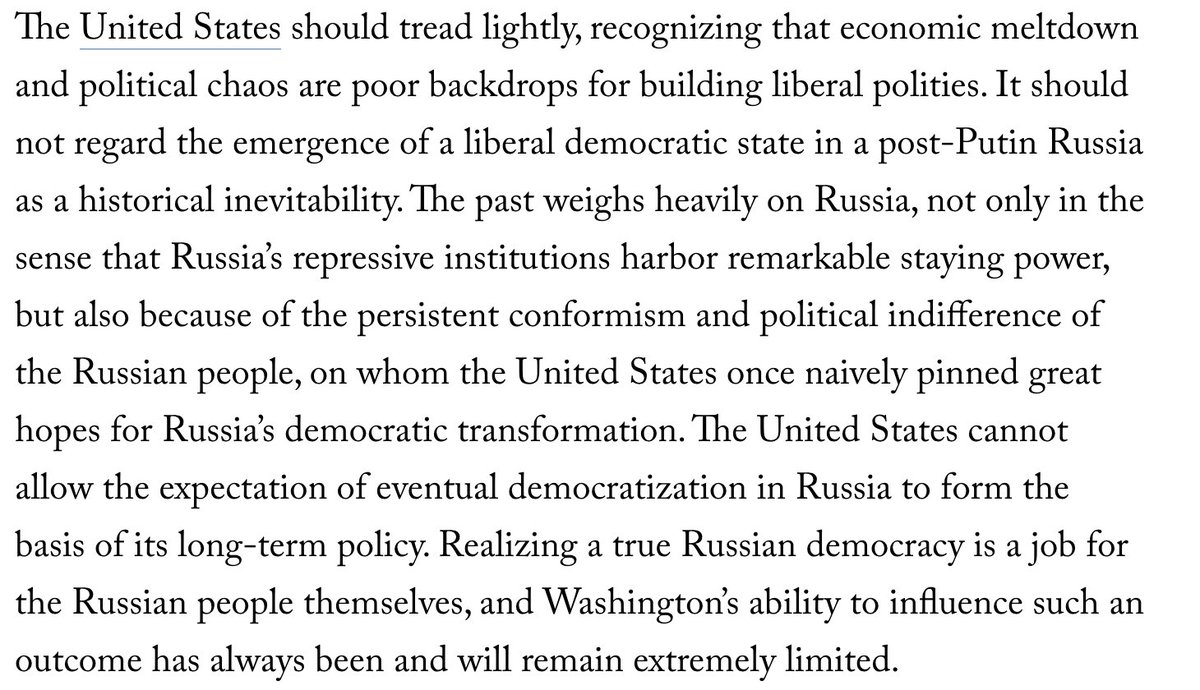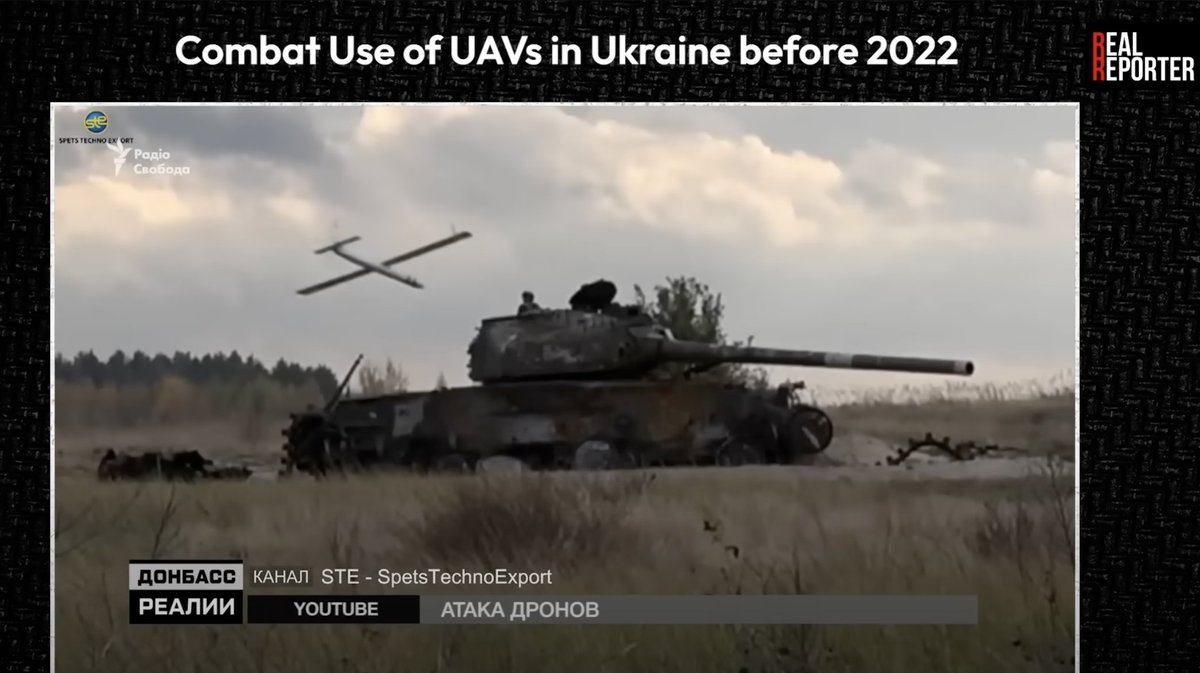One of the objectives that @DrRadchenko and I wanted to achieve in our @ForeignAffairs piece (link below) is to debunk some of the prevailing myths about Russia. Here are the most important ones: 🧵
foreignaffairs.com/russian-federa…
foreignaffairs.com/russian-federa…
Myth #1: Once Putin leaves power/dies, Russia will abandon its anti-Western belligerent policies and return to the bosom of the liberal Western order
Reality: Putin is most likely to be replaced by another hardliner who will continue or even accelerate his aggressive policies
Reality: Putin is most likely to be replaced by another hardliner who will continue or even accelerate his aggressive policies

Myth #2: It's only a matter of time before Russia turns into a Jeffersonian democracy with the rule of law, free press, etc
Reality: Democracy has become a dirty word in Russia over the last 3 decades. Even long after Putin is gone, the Russian public is unlikely to desire it
Reality: Democracy has become a dirty word in Russia over the last 3 decades. Even long after Putin is gone, the Russian public is unlikely to desire it

Myth #3: Russia and US will one day join forces to form an anti-China alliance (Reverse Kissinger model)
Reality: Russia, with historical visions of its own grandeur, has no interest in joining any alliance—much less a Western one. Nor is it in its interests to antagonize China
Reality: Russia, with historical visions of its own grandeur, has no interest in joining any alliance—much less a Western one. Nor is it in its interests to antagonize China

Myth #4: The only options for Russia are to become a junior partner to China or US
Reality: Russia's desired state is a multipolar world, where it is one of the poles. With its power diminishing, it is unlikely to get that. But it can still project power by pursing non-alignment
Reality: Russia's desired state is a multipolar world, where it is one of the poles. With its power diminishing, it is unlikely to get that. But it can still project power by pursing non-alignment

Myth #5: It is possible to destroy or dismantle Russia (or that it would be in our interests to do so)
Reality: As George Kennan famously once said "The Soviet Union will not last, but Russia will"
It is a country of 140m people that is not going to disappear or disintegrate
Reality: As George Kennan famously once said "The Soviet Union will not last, but Russia will"
It is a country of 140m people that is not going to disappear or disintegrate

Myth #6: Putin will get replaced in a popular uprising
Reality: Putin's hold on power is the strongest it's been in 23 years, since becoming President. If he gets replaced, it will be due to a palace coup orchestrated by people who think he is not aggressive enough
Reality: Putin's hold on power is the strongest it's been in 23 years, since becoming President. If he gets replaced, it will be due to a palace coup orchestrated by people who think he is not aggressive enough

Myth #7: We can enact a regime change in Moscow
Reality: It's a folly to think that we are even capable of such action. Not to mention that US track record of regime change over the last half century in countries considerably weaker than Russia is not stellar, to say the least
Reality: It's a folly to think that we are even capable of such action. Not to mention that US track record of regime change over the last half century in countries considerably weaker than Russia is not stellar, to say the least
We need a long-term strategy for Russia that takes into account these realities and focuses on pursuit of achievable goals, not hopeless dreams. A non-aligned Russia, equidistant from America and China, is a possible outcome that would benefit US *and* Russia
END
END
• • •
Missing some Tweet in this thread? You can try to
force a refresh








